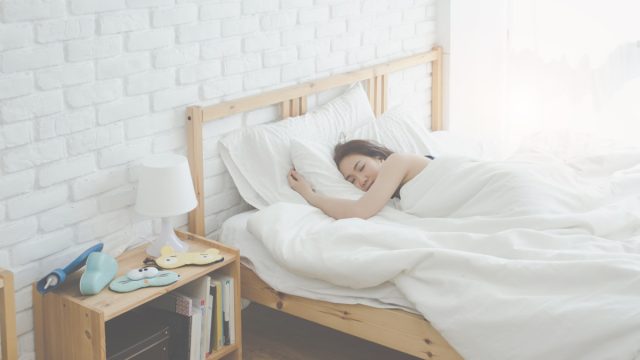
You may not realize it, but humans have been using pillows since the dawn of time. In fact, researchers have been able to trace pillows back more than seven millennia, to ancient Mesopotamia (modern-day Iraq and surrounding areas), where people used blocks of stone to prop up their heads. And that's not all. People in ancient Egypt also reputedly used blocks of stone, while those in ancient China rested their heads on slabs of porcelain or ceramic. Comfy!
Sure, ancient pillows may not sound like the height of luxury to our feather-accustomed proclivities, but they do show a historical pattern of humans seeking something to elevate their heads during a deep rest. That must indicate some level of necessity…. right?
Well, according to research out of the University of Rochester Medical Center, all signs point to yes.
See, the human spine is naturally curved, and a pillow is essential for maintaining proper spine alignment. Of course, everyone's spine is different, but, for the most part, proper spine alignment means being able to draw a straight line from your ear to your ankle while standing. Your sleeping position should mimic that.
"While a mattress plays a large role in keeping [your] lower spine properly aligned, a pillow is key to keeping [your] neck in proper position," says certified sleep science coach Bill Fish.
If your spine is not properly aligned with the rest of your body, it can cause issues head to toe; your muscles, joints, and ligaments will all experience more strain than they're built for. And all that strain can add up, leading to serious injuries, like ruptured tendons. Oh, and that doesn't even account for the toll it could take on your back itself. By regularly sleeping with a misaligned spine, you'll weaken the discs in your back, a condition that can quickly become chronic—or worse, irreversible. Using a pillow can prevent such woe.
However, if you're using a pillow incorrectly—either having too many pillows for your particular sleeping position, or just using the wrong type of pillows entirely—you might be causing problems rather than solving them.
According to the National Sleep Foundation, 99 percent of people sleep with pillows on the bed. No surprise there, of course—but the same study found that 27 percent of people use three or more (!) pillows. (By the way, that's a good fact to keep in mind next time your partner yells at you for hogging the headrests.) The thing is, you're often better off using, at max, two pillows.
If you sleep on your side, you should use two: a firmer pillow under your head and one between your knees, to keep your spine aligned. Back-sleepers should also use two pillows, with one under the knees and the other under the head (but the pillows should be thinner).
Now, if you're a stomach-sleeper, you'll want to sleep with one paper-thin soft pillow—or even consider using no pillow at all. When sleeping on your stomach, your back is naturally arched, and your neck turns to the side, disrupting that proper straight-line alignment. Raising your head disrupts that even further. (However, now is a good time to note that experts say sleeping on your stomach is the worst position for your spine and should be avoided at all costs.)
Regarding your pillow material, for the most part, it's based on personal preference—but that doesn't mean there aren't pros and cons to each of the many varieties.
The most common pillows are made out down, feather, memory foam, or polyester. Down and feather pillows are extremely lightweight and malleable, but are typically expensive and pose an allergy risk to some. Memory foam is a bit heavier, but it's also malleable—and also expensive. Polyester, on the other hand, is generally inexpensive, but tends to wear out quickly. As you can probably guess, using a worn-out polyester pillow does your spine precisely zero favors. Still, no matter what you sleep on, one thing's for absolute certain: It's more comfortable than a block of stone. And if you're in the market for some amazing headrests, check out these 10 Best Pillows For A Better Night's Sleep.
To discover more amazing secrets about living your best life, click here to follow us on Instagram!





















